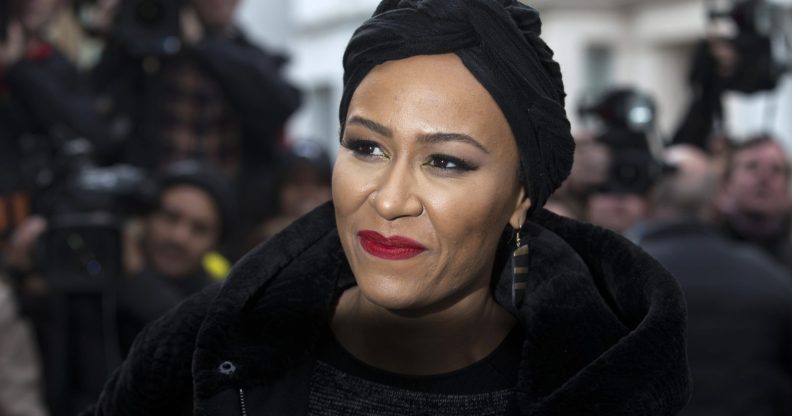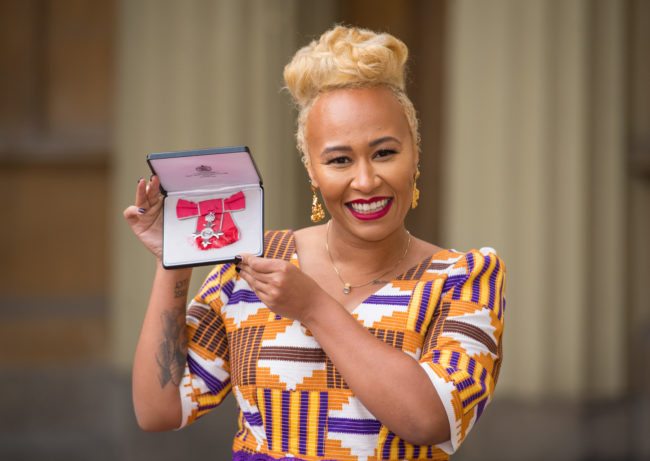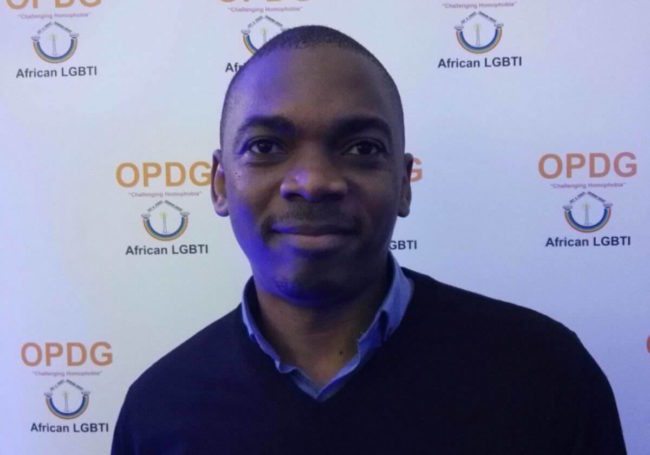Emeli Sande urges Commonwealth leaders to overturn anti-gay laws

British singer Emeli Sande arrives at a west London studio to record the new Band Aid 30 single on November 15, 2014. Bob Geldof, One Direction, Bono and some 30 other stars gathered in a studio in London on Saturday to record a 30th anniversary version of the Band Aid charity single to raise money to fight Ebola. Led Zeppelin’s Robert Plant, Coldplay’s Chris Martin and Sinead O’Connor were also among the rockers brought together by Geldof to sing the fourth version of “Do They Know It’s Christmas?” Musicians began arriving in the early morning and were expected to record all day and into the night before the single is aired for the first time on Sunday and then officially released on Monday. AFP PHOTO / ANDREW COWIE (Photo credit should read ANDREW COWIE/AFP/Getty Images)
Singer Emeli Sande has urged Commonwealth leaders to overturn anti-gay laws and “see people as human beings.”
Speaking at the Commonwealth Heads of Government Meeting (CHOGM) in London on Wednesday, the half-Zambian singer asked world leaders to repeal Colonial-era laws criminalising gay relationships.
“They need see people as human beings,” the “Next To Me” singer told the Evening Standard.
“I hope this will send a message that we are all equal, that we are all humans going through a human experience. I hope there is more freedom and equality for them as well in Zambia. I think it will improve the country in all kinds of ways,” she added.

Emeli Sande poses with her MBE medal, following an investiture ceremony at Buckingham Palace on February 8, 2018 in London, England. (Dominic Lipinski/Getty)
Sande’s father is from Zambia, which is one of the African nations that inherited Britain’s colonial anti-gay laws.
Gay Zambians can be imprisoned for life for their sexuality, and it is one of 36 out of 53 countries that continue to criminalise same-sex acts, primarily under laws imposed during the British colonial era which were never repealed.
Sande is not the only high-profile figure who has spoken in favour of LGBT+ rights in the run-up to CHOGM.
Prince Harry met with LGBT activists from the Commonwealth today and said that the “the tide is turning” on LGBT rights in the nations.
LGBT Commonwealth campaigners submitted a petition signed by 104,000 people to get LGBT rights on the agenda at the CHOGM meeting.
The campaigners have demanded that this is the year that LGBT rights are discussed at the summit.
“Surprisingly, in the 60 years since its existence, they [CHOGM] have never discussed LGBTQI rights,” said the Director of the African Equality Foundation, Edwin Sesange.

Edwin Sesange
“The Commonwealth does deal in controversial issues – it got involved with the Apartheid – so we strongly believe that the Commonwealth is capable of dealing with homophobia in these countries.”
Prime Minister Theresa May has said that she “deeply regrets” the legislation that was imposed on countries like Zambia during British rule during the summit.
Addressing the heads of government on Tuesday, May said to the leaders that the anti-gay laws “were wrong then and they are wrong now.”
“Across the world, discriminatory laws made many years ago continue to affect the lives of many people, criminalising same sex relations and failing to protect women and girls,” she said.
“I am all too aware that these laws were often put in place by my own country. They were wrong then and they are wrong now.
“As the United Kingdom’s Prime Minister, I deeply regret the fact that such laws were introduced, and the legacy of discrimination, violence and even death that persists today,” she added.

